Data-Driven Literacy Instruction
A Practical Guide to Assessment, Analysis, and Intervention
Description:
This session provides a practical roadmap for using assessment to inform instruction and improve literacy outcomes. We’ll demystify the differences between screening, diagnostics, and progress monitoring, explore the essential components of a comprehensive reading assessment, and show you how to leverage data to create targeted small groups and monitor student progress. Gain the confidence and skills to make data-driven decisions that truly impact your students.
Who should take this class:
- K-12 educators and administrators
What you will learn:
- Why evidence-aligned assessment is crucial for effective literacy instruction, including the purposes of screening, diagnostic, and progress monitoring assessments.
- Key considerations for developing effective assessment systems within your school/district.
- The essential components of a reading assessment and how to accurately assess reading development to gain actionable data.
- How to facilitate data conversations with colleagues that prioritize literacy outcomes for students.
- How to analyze data from diagnostic assessments to identify student needs and inform the creation of targeted small groups or interventions.
- Key factors to consider when developing and implementing impactful targeted interventions that lead to improved literacy outcomes.
- How to use progress monitoring data to determine if students are responding to intervention.
Materials provided:
- PDF of all slides in handout form
Certifications:
- Certificate of Completion
Data-Driven Literacy Instruction
$200.00
This session provides a practical roadmap for using assessment to inform instruction and improve literacy outcomes.
Additional Knowledge Blocks
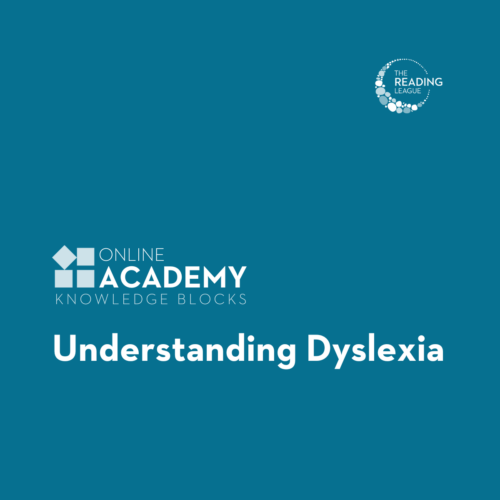
Understanding Dyslexia
There are many misconceptions about what dyslexia is and is not. Participants will learn critical indicators of dyslexia and the legal nuances of a dyslexia diagnosis in schools.
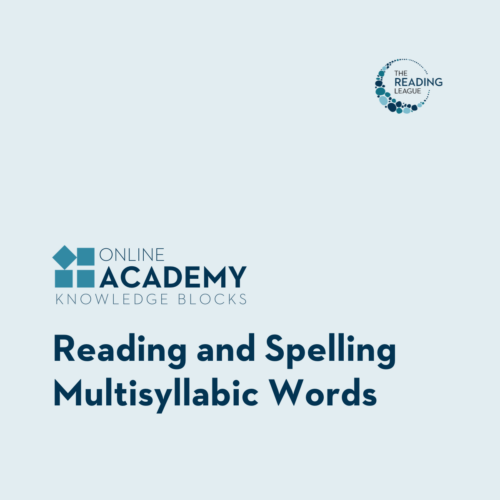
Reading and Spelling Multisyllabic Words
Learn the 6 major syllable types in English and instructional routines for teaching students to read and spell multisyllabic words.
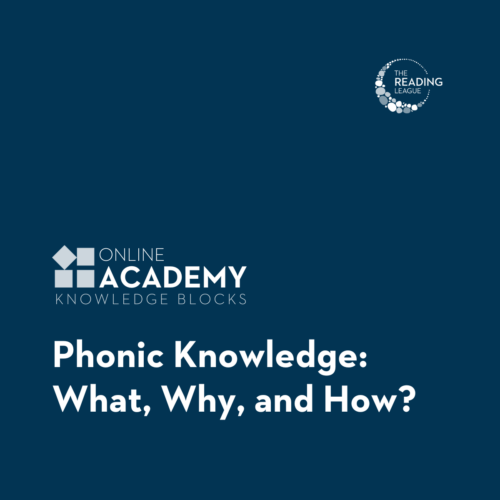
Phonic Knowledge: What, Why, and How?
Students need phonic knowledge to read and spell efficiently. Participants will learn the six major syllable types of English and an assessment tool to plan for instruction.
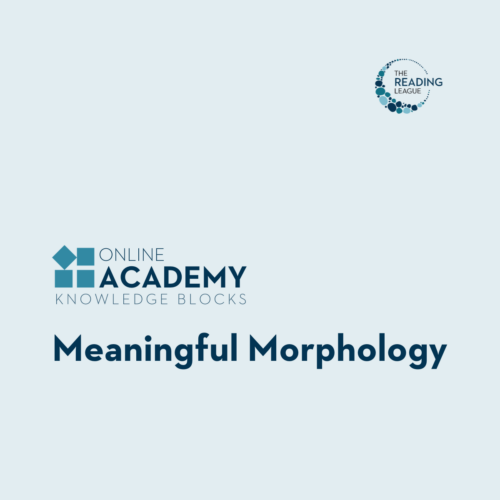
Meaningful Morphology
Knowledge of morphology provides insight into both the meaning and spelling of words. Participants will deepen their knowledge of morphology while also learning key features of morphological instruction in the classroom.
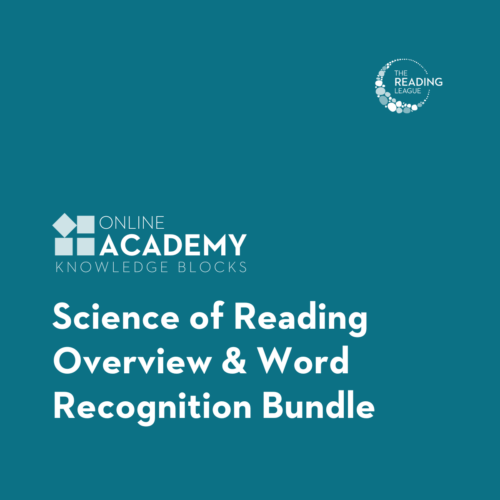
Science of Reading Overview & Word Recognition Bundle
Save $200 with this four session bundle! Perfect for anyone new to the science of reading or for anyone who wants to deepen their understanding of how skilled reading develops.
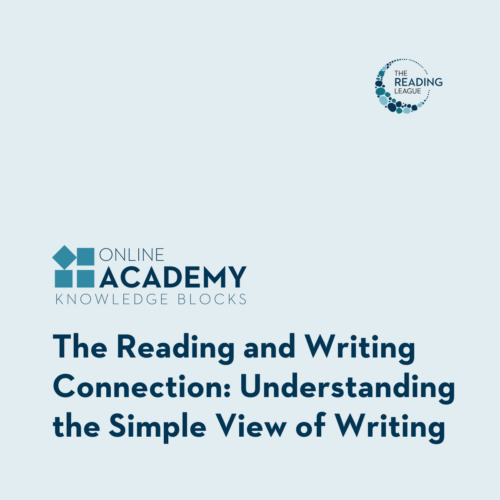
The Reading and Writing Connection: Understanding the Simple View of Writing
Two key factors contribute to skilled written expression. Participants will learn the subcomponents of these factors, with a particular emphasis on the importance of handwriting fluency.
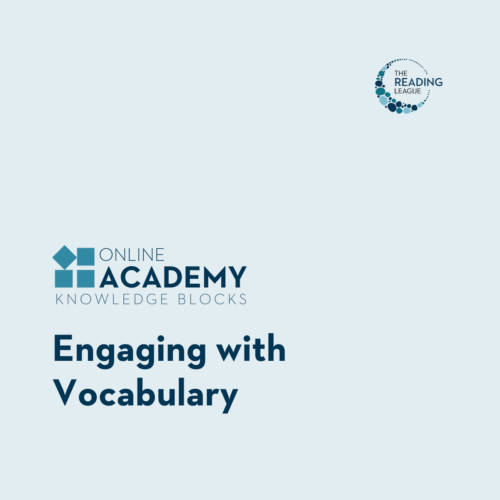
Engaging with Vocabulary
Participants will learn how to decide which vocabulary words to teach and a sample routine for explicit instruction.
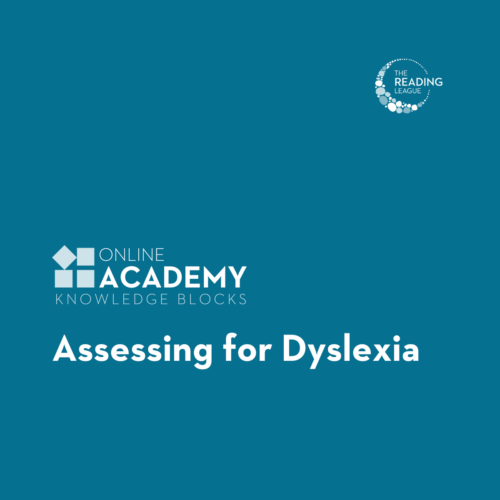
Assessing for Dyslexia
When assessing for dyslexia, there are specific test measures and key interpretations needed to render a dyslexia classification. Participants will examine case study data and discuss recommendations for interventions and accommodations.
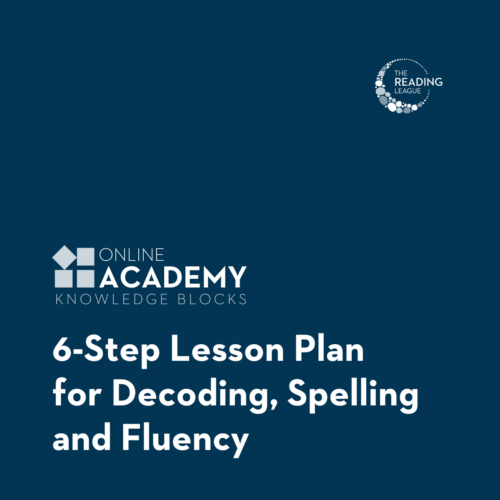
6-Step Lesson Plan for Decoding, Spelling, and Fluency
Participants will learn how to plan and implement engaging, evidence-aligned, 6-Step lessons to teach the phonemic and phonic skills necessary for efficient decoding, spelling, and fluency.